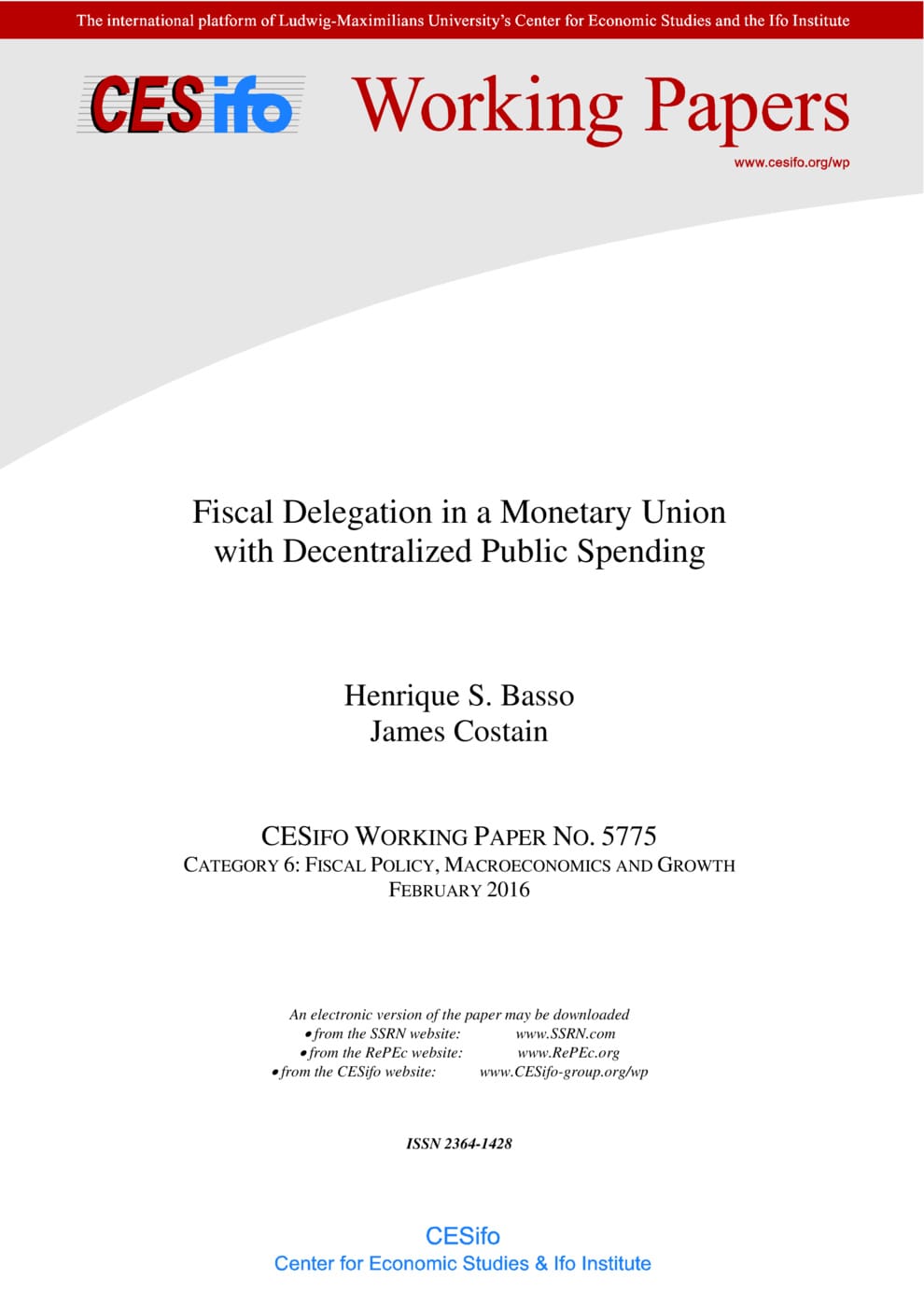Fiscal Delegation in a Monetary Union with Decentralized Public Spending
CESifo, Munich, 2016
CESifo Working Paper No. 5775

In a monetary union, the interaction between several governments and a single central bank is plagued by several sources of deficit bias, including common pool problems. Each government has strong preferences over local spending and taxation but suffers only part of the costs of union-wide inflation and higher interest rates, creating a tendency towards excessive debt. Motivated by the evident failure of fiscal rules to restrain debt in the European context, this paper analyzes an alternative fiscal regime in which the control of sovereign debt issurance is delegated to an independent authority, while public spending decisions remain decentralized. Using a symmetric perfect-foresight model, we compare the long-run policy biases affecting a typical country across different institutional arrangements. Establishing an independent fiscal authority tends to reduce debt via three distinct channels: first, the debt aversion induced by its mandate; second, its greater patience, compared to an elected institution; and third, the internalization of common pool problems, if the authority is established at the union-wide level. Furthermore, we show that fiscal delegation is more effective in restraining debt, and more informationally efficient, than the establishment of a federal government which would centralize fiscal decisions.
Fiscal Policy, Macroeconomics and Growth
Public Finance